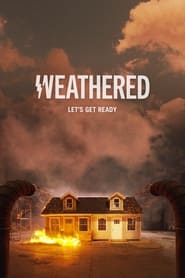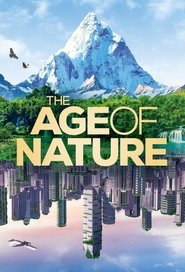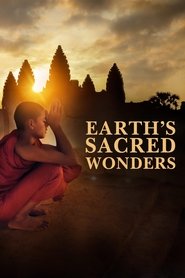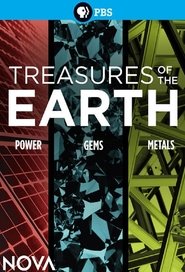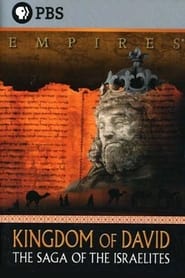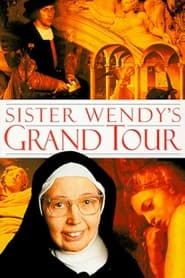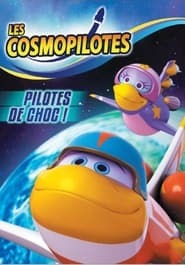Pbs TV Series - Page 28
-
Virus
1960
Virus
1960
From KQED in San Francisco and the Virus Laboratory of the University of California, Berkeley, comes a distinguished series of eight half-hour programs on the nature of the virus. Prepared using a National Science Foundation grant, the series is designed to explain to the viewer some of the basic facts about viruses, those structures so essential to life and health, facts which for the most part have only been discovered in the past twenty-five years. Drawing on advanced scientific techniques such as microcinematography, electron microscopy and freeze drying, as well as on animation, large-scale models and drawings, the programs combine lectures with demonstrations to give the viewer an extremely vivid picture of this complicated topic. Particularly emphasized are facts about the virus' relation to bacterial disease, to polio, and to cancer, and new information about viruses which may not yet be generally known to students of biology or to the non-scientific public. -
Weathered
2020
Weathered
2020
From wildfires to hurricanes to tornadoes, Weathered will teach you about natural disasters from the people who have survived them, as well as what you can do to prepare. -
The Age Of Nature
2020
The Age Of Nature
2020
Explore humanity’s relationship with nature and wildlife, as scientists and conservationists from all over the world examine ways we can restore our planet. This documentary series asks whether newfound awareness of nature could bring about a new chapter in the human story. -
Frontline - News War
0000
Frontline - News War
0000
In a four-part special series, News War, FRONTLINE examines the political, cultural, legal, and economic forces challenging the news media today and how the press has reacted in turn. Through interviews with key figures in print, broadcast and electronic media over the past four decades -- and with unequaled, behind-the-scenes access to some of today's most important news organizations, FRONTLINE traces the recent history of American journalism, from the Nixon administration's attacks on the media to the post-Watergate popularity of the press, to the new challenges presented by the war on terror and other global forces now changing -- and challenging -- the role of the press in our society. -
Unnatural Causes: Is Inequality Making Us Sick?
2008
Examines the role of social determinants of health in creating health inequalities/health disparities in the United States. Based on extensive research by a wide variety of academics, public health experts, and medical practitioners, the seven-part series explores how class and racism can have greater impacts on one's health outcomes than genetics or personal behavior. The opening 56-minute episode, In Sickness and In Wealth, presents the series’ overarching themes. Each supporting half-hour episode, set in a different ethnic/racial community, provides a deeper exploration of how social conditions affect population health, and how some communities are extending their lives by improving them. -
Earth's Sacred Wonders
2020
Many of the world’s best-known landmarks have been inspired by faith and today more worshippers than ever are flocking to these sacred places. For some people they’re sanctuaries for quiet contemplation. For others, they’re sites for astonishing acts of worship, dangerous challenges and extraordinary deeds of devotion, rarely seen by outsiders. -
NOVA: Treasures of the Earth
2018
star 2Treasures of the Earth: Gems, Metals, and Power is a 3-part series that will take us on a journey deep inside Earth to uncover the mysteries of how these treasures were created, and to explore how they have allowed humankind to progress and build our great civilizations. But even as that quest continues, we are discovering that some of our treasures may soon run out or have unintended consequences that bring new perils. Can our ancient treasures reveal new secrets that will help us solve the problems we face today? -
Bitter Rivals: Iran and Saudi Arabia
0000
Bitter Rivals illuminates the essential history - and profound ripple effect - of Iran and Saudi Arabia's power struggle. It draws on scores of interviews with political, religious and military leaders, militia commanders, diplomats, and policy experts, painting American television's most comprehensive picture of a feud that has reshaped the Middle East. -
Teeny Little Super Guy
1984
star 10Teeny Little Super Guy was an animated short featured on PBS's Sesame Street. The shorts featured a small animated man, the Teeny Little Super Guy, who resides in a live-action, regular-sized kitchen. Robert W. Morrow described the shorts as including "parables of childhood conflict and striving." -
History With David Rubenstein
2020
David Rubenstein interviews renowned scholars and public figures in the U.S. -
Around Akron with Blue Green
2016
This monthly half-hour series is the work of Akron producer Blue Green, who says, “The goal of the show is to shine a spotlight on all of the good things that Akron has to offer.” Green noted that the city of Akron is a wonderful place in which to live, work, stay and play, but he feels “to truly be a great city, we need our own Akron-based news and local television programming.” Each show consists of four stories, including segments on dining, arts and culture, history, business, and movers and shakers. -
Kingdom of David: The Saga of the Israelites
2003
Nearly 3000 years ago, a tiny group of tribes in the land of Canaan gave birth to a nation and a religion — a religion that would dare to redefine humanity’s relationship with God. -
Sister Wendy's Grand Tour
1994
The elderly nun takes viewers on a whirlwind tour of Europe's finest artistic treasures, -
NET Playhouse
1966
NET Playhouse
1966
NET Playhouse is an American dramatic television anthology series produced by National Educational Television. NET subsequently merged with WNDT Newark, New Jersey to form WNET and was superseded by the Public Broadcasting Service. -
Space Racers
2014
star 7.5Welcome to the fantastic world of Stardust Bay – the imaginative home of the Space Racers! This animated series geared toward preschool children offers a universe of fun for the entire family! Enjoy stunning computer-generated imagery, real space sounds and images, and exciting storylines that teach exploration, investigation, observation and teamwork. -
Chicago Stories
2020
Chicago Stories
2020
An original documentary series from Chicago PBS affiliate WTTW uncovering the city’s fascinating history. Each story presents an entertaining and intriguing tale about a person or event that shaped Chicago. The series reflects the rich diversity and breadth of human experience that shaped this great American city. -
As Schools Match Wits
1961
As Schools Match Wits is a high school quiz show, hosted by Beth Ward, that airs on PBS member station WGBY in Springfield, Massachusetts, and produced in association with Westfield State College. America's longest-running high school quiz show, As Schools Match Wits is well known throughout western Massachusetts and northern Connecticut. -
The Forsyte Saga
0000
The Forsyte Saga
0000
Chronicles the lives of four generations of an upper-class family of stockbrokers, set against the backdrop of a rapidly evolving late-Victorian world. -
The American Revolution
0000
The American Revolution was at once a war for independence, a war of conquest, a civil war, and a world war, fought by neighbors on American farms and between global powers an ocean or more away. It impacted millions from Vermont’s Green Mountains to the swamps of South Carolina, from Indian Country to the Iberian Peninsula. In defeating the British Empire and giving birth to a new nation, the American Revolution turned the world upside-down. Thirteen colonies on the Atlantic Coast united in rebellion, won their independence, and established a republic that still endures. The American Revolution, will present the story of the men and women of the Revolutionary generation, their humanity in victory and defeat, and the crisis that they lived through. -
DragonflyTV
0000
DragonflyTV
0000
DragonflyTV is a science education television series for children aged 6–12, produced by Twin Cities Public Television, broadcast on most PBS stations. DragonflyTV showcases our most eager young scientists in a way that encourages all kids to discover the wonders of science. It’s a new approach in science television for kids, because it features ordinary children and their own science investigations. Whether shooting over moguls on freeride skis, getting up close and personal with alligators, or cooking up experiments in their own kitchens, the DragonflyTV kids empower viewers to explore, question, and learn. In each episode, children tell how they pursued their own investigations, communicating the infectious excitement that comes with making their own discoveries. Seasons 1-4 are co-hosted by Michael Brandon Battle and Mariko Nakasone. Seasons 5-7 are hosted by Eric Artell and are produced in partnership with science museums. DragonflyTV was created in collaboration with Project Dragonfly at Miami Uni

